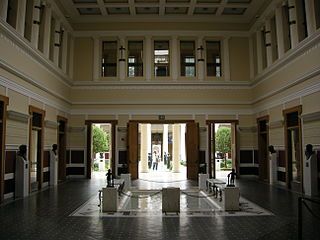Apparently, Oil Money Does Not Buy Happiness

Getty was famous for his extravagant lifestyle, but also for his stinginess, reclusiveness, and uncompromising attitude. He was an object of public fascination and legend, envy, and gossip. Nevertheless, he seemingly did not enjoy the fame, objecting that people “only wanted money from him.” He thus pretended to be poor, wearing wrinkled suits and worn out pants. With this attitude, people perceived him as a particularly miserly man. On the one side he lived in luxury, surrounded by gardens, pools, trout streams, expensive furniture, and even two lions, Nero and Teresa. On the other, he had installed a pay telephone in his Sutton Place manor, so that his guests could not make long-distance charges on his bill.
Getty is often seen as a typical example of the saying that “money does not buy happiness.” His joy came through the thrill of his business ventures, but when they succeeded they demanded excessive amounts of his time. He yearned privacy, but his wealth made him famous, attracting people but not friends.
His family life, from his relationship with his own father onwards, was filled with unsuccessful relationships. Getty had five sons, two of whom died before him (one possibly from a suicide). His third son, J. Paul Getty, Jr., was a reformed drug addict, who turned to charitable work and eventually donated more than $200 million before dying of a chest infection in April 2003. Getty’s grandson, J. Paul Getty III was so traumatized by the experience of his own kidnapping that he became a drug addict, eventually destroying his health. Several others of Getty’s grandchildren also became drug addicts.
It’s a good bet that the coming era of renewable energy will see a much greater distribution of wealth, just as it will accompany a wider distribution of generation. Perhaps more widespread wealth will bring about more happiness for all.
